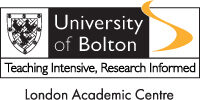The MSc Software Engineering degree allows you to forge your own path into this specialism.
Gain a deeper understanding of advanced software methodologies with the MSc Software Engineering degree.
You will be able to analyse advanced software development and recognise resources required for Software Engineering once you have graduated. Jobs directly related to a Software Engineering degree include games, systems and web development, search engine optimization, information systems management, web design and business analysis. This degree also ensures that you can have access and exposure to the latest techniques alongside practical skills.
At Regent College London, we have a phenomenal student services team! A dedicated student services team member will be assigned to you. They will be your main point of contact through your studies and will always be on hand to help.


